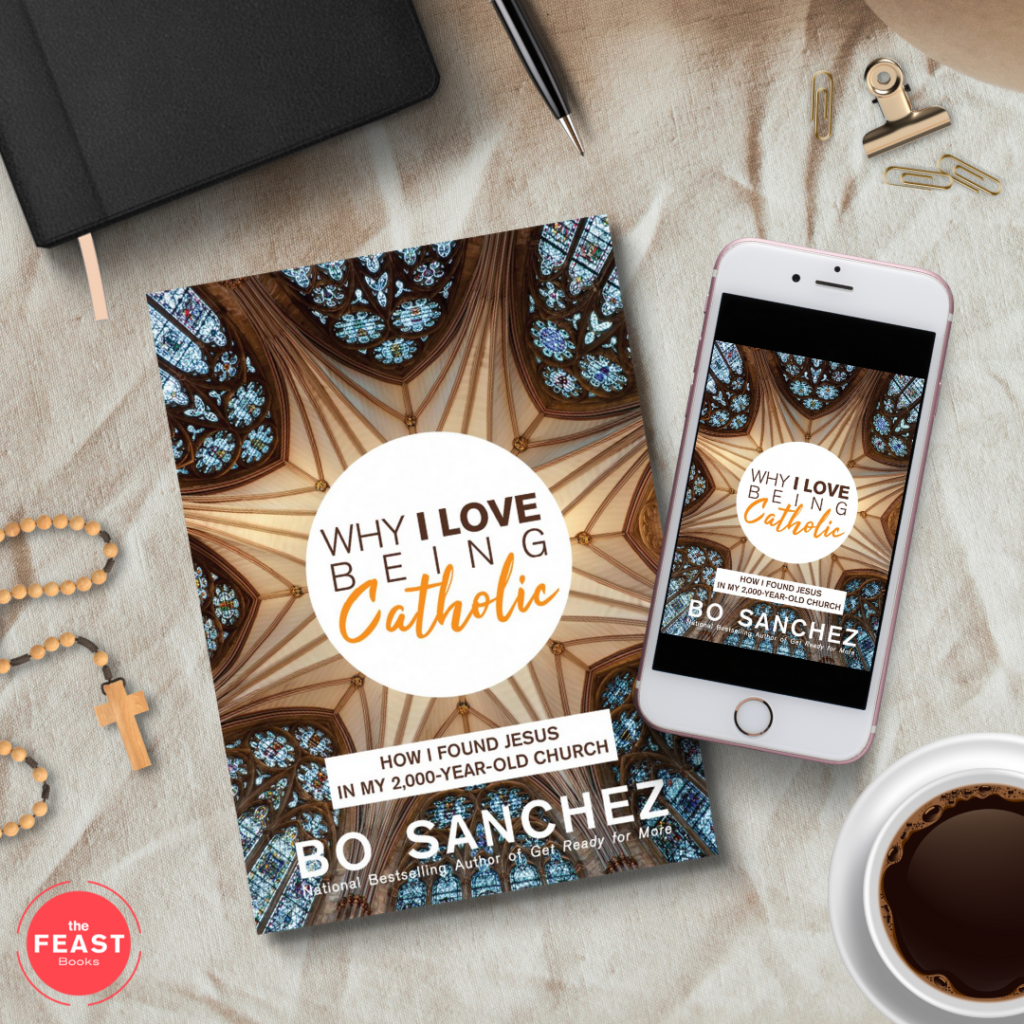“Since Christ Himself has said, ‘This is My Body,’
who shall dare to doubt that it is His Body?”
– St. Cyril of Jerusalem, 313 A.D.
“The Eucharist is not a prize for the perfect,
but medicine for sinners.”
– Pope Francis
One unlikely Catholic convert is Allen Hunt, a megachurch methodist pastor in Atlanta. Every Sunday, 15,000 people attended his church.
This guy is brilliant. He is a Bible scholar with a Ph.D. in the New Testament and Early Church History from Yale University.
What convinced him to become Catholic?
It so happened that one of his fellow students in Yale was a Catholic priest. The priest asked Hunt to lecture in a cloistered monastery of Dominican nuns.
At the end of the lecture, a nun asked Hunt, “Why aren’t you part of the Catholic Church?”
He said, “For me, communion is a symbol. A metaphor.”
She said, “You’re a New Testament scholar, right? You remember the Gospel about Jesus gathering His disciples for the Last Supper… and He took the loaf and said this is My body and took the cup and said this is My blood. What don’t you understand, Allen?”
Allen was about to speak when the nun said, “He didn’t say this is like My body. He didn’t say this is like My blood. He said, ‘This is My body. This is My blood.’”
The nun continued, “Let’s open to John, chapter 6, verses 53, 54, 55, and 56 that say, ‘Truly, truly, I say to you, unless you eat the flesh of the Son of Man and drink His blood, you have no life in you.’ Four times in a row.” She asked again, “What don’t you understand?”
Hunt continued to read more about the early Church—those who lived between the first to the fourth century. He discovered that these early Christians believed in the real presence of Christ in the Eucharist. And they believed in it so much, they were willing to die because they believed it is literally the Body and Blood of Jesus.
He studied some more. He discovered that the Eucharist was the center of worship for 1,500 years. He imagined that if one of those early Christians time-traveled today and attended one of his services in his church, the man would have heard good music, good preaching, and met nice people—but he would say, “When are we going to Church? There’s no Eucharist. When is Church?”
In 2007, this megachurch pastor converted to Catholicism. (A few years ago, Allen Hunt wrote the book Confessions of a Mega Church Pastor: How I Discovered the Hidden Treasures of the Catholic Church.)
Many Times, We Don’t Get It
One day, a married couple went out camping.
Both found themselves awake at 3:00 a.m., gazing at the stars sparkling in the night sky. The wife felt extra romantic. She squeezed her husband’s hand and asked, “Honey, what do you see?”
The man says, “I see stars.”
“And what does that mean?” she asked, cuddling up to him.
With the modulated tone of a professor’s voice, he said, “Astronomically, there are one hundred billion stars in our galaxy alone, the Milky Way galaxy, representing one hundred billion solar systems. And even if light travels at 299,792 kilometers per second, the nearest star is 4.3 light years away. So what you see now is how the stars appeared years ago.”
The wife folds her arms and tells him icily, “That’s not what I meant.”
Her husband frowns. “Uh . . . what did you mean, honey?”
“Never mind. Good night,” she faces the other way and goes back to sleep.
Sometimes, we just don’t get it.
And like the husband in the story, we don’t get the Mass too. There’s a romantic moment there where God donates Himself to us in great love, and we miss it. We totally miss it. Because we only see the ritual, the bread, the wine, the words—but not the meaning.
A Meal Seals Friendships
What is the connection between eating and relationships?
This sociological phenomenon crosses all cultural and historical boundaries. Whether it be Chinese, or Egyptian, or Babylonian, or European or Asian culture, you’ll find one thing in common: When people want to strengthen a relationship, they’ll eat together.
It’s our experience that if we eat with someone over a meal, we break down barriers between people.
The food somehow brings the diners together.
For example, in ancient Hebrew culture, a meal goes beyond biological feeding. Meals were used to seal friendships. Business deals are sealed with a meal—because they want to depart as friends, not just business partners.
If I invite you to a meal, I’m declaring to the world that you’re my friend.
That was why when Jesus ate with tax collectors and prostitutes, it was a terrible scandal—because He was declaring to the world that He was their friend.
That was why when Jesus hollered to chief tax collector Zacchaeus to come down from the sycamore tree because he would eat in his home, it was an outrage.
That was why when Judas broke faith with Jesus right after the Last Supper, it was a grievous betrayal between two friends.
That is why the Bible says, “Behold, I stand at the door and knock. If anyone hears My voice and opens the door, I will come in to him and eat with him, and he with Me” (Revelations 3:20, ESV).
And His meal ministry doesn’t stop, because heaven is the eternal banquet.
What Is Communion?
Communion is a marriage proposal.
At every Mass, God is saying, “I love you. I want you to be totally one with Me.”
Every Mass is a date with your Lover.
Every Mass is a family reunion.
Every Mass is a party. Every Mass is designed to deepen your relationship with God.
At Mass, He is sealing His friendship with you.
But He doesn’t do it with an ordinary meal.
He does it in such a dramatic way because the meal is Himself. That’s why any human analogy of the Mass will not be enough.
There are so much more to know about our Catholic faith. Would you like to read more about it? Read more through the book below.
*This excerpt was taken from WHY I LOVE BEING CATHOLIC by Bo Sanchez, available in paperback and e-book copy at http://www.feastbooks.ph!




